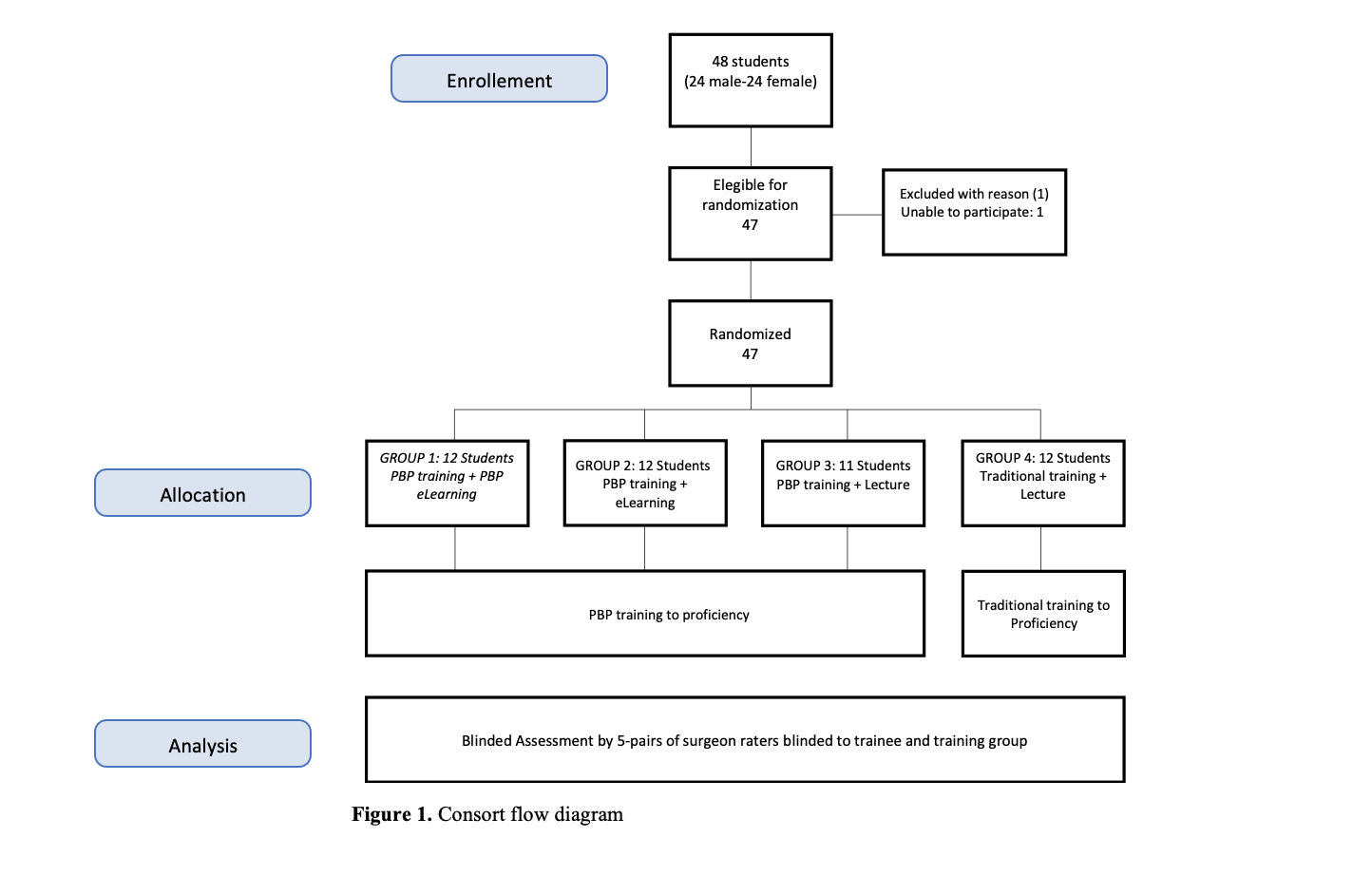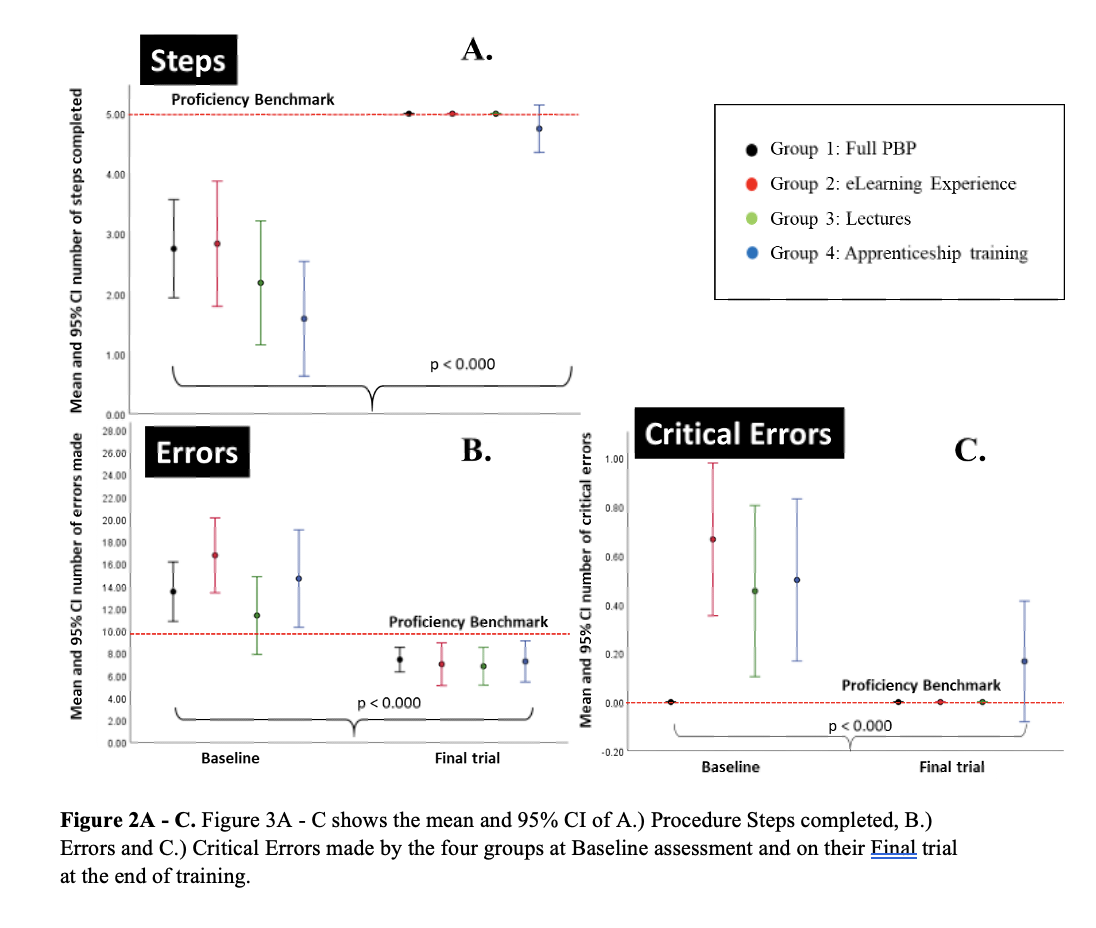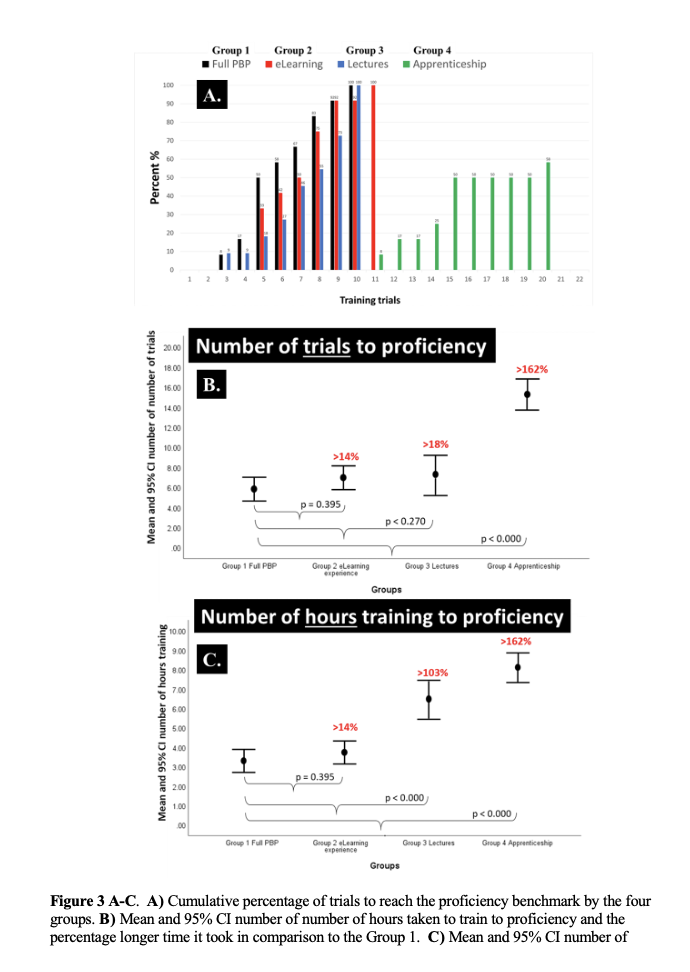Back
Poster, Podium & Video Sessions
Moderated Poster
MP41: Surgical Technology & Simulation: Training & Skills Assessment
MP41-06: A prospective, randomized, multi-centre trial on the efficiency and effectiveness of proficiency based progression robotic surgical skills training
Sunday, May 15, 2022
10:30 AM – 11:45 AM
Location: Room 228
Stefano Puliatti*, Marco Amato, Modena, Italy, Rui Farinha, Ghent, Belgium, Artur paludo, Porto Alegre, Brazil, giuseppe Rosiello, milan, Italy, Ruben De Groote, Aalst, Belgium, Laura Langhendries, Maxime Lassel, Leuven, Belgium, Andrea Mari, Florence, Italy, Lorenzo Bianchi, Pietro Piazza, bologna, Italy, ben Van Cleynenbreugel, Leuven, Belgium, elio Mazzone, milan, Italy, Kobe Van Hove, Simon Meganck, Léonore Maertens, Louis-Philippe Boret, Ghent, Belgium, filippo Migliorini, verona, Italy, saverio forte, bari, Italy, Bernardo rocco, milan, Italy, Salvatore Micali, Modena, Italy, Alexandre Mottrie, Aalst, Belgium, Anthony Gallagher, Melle, Belgium
- SP
Poster Presenter(s)
Introduction: We report the use of full Proficiency Based Progression (PBP) methodology to train robotic surgical skills in comparison to other conventional training approaches. We evaluated:1) if all trainees reached the proficiency benchmark, 2) the number of training trials and time required.
Methods: In this study 47 participants were randomized to 4 different groups i) Full PBP group that received eLearning on the ORSI chicken anastomosis task with the requirement to reach the proficiency benchmark before starting practical training. ii) eLearning group, received the exact same information as Full PBP group, but they were not required to reach the eLearning benchmark. iii) Traditional group received the same content in face-to-face lectures, before the practical module. iv) The Apprenticeship group received a conventional preparation (Fig. 1). The task evaluated was the robotic suturing and knot tying anastomosis in chicken model.
Results: All of the participants, except five in group 4, demonstrated the proficiency benchmark (Fig. 2A-C). Group 1 took ~ 6 trials or ? 3 hours; Group 2 required 14% longer, Group 3, 103% and Group 4, 162% longer to reach proficiency (Fig. 3A-C).
Conclusions: The efficiency and effectiveness observed with a full application of a PBP approach to skills training could have profound implications for how training is conducted in the future.
Source of Funding: no



Methods: In this study 47 participants were randomized to 4 different groups i) Full PBP group that received eLearning on the ORSI chicken anastomosis task with the requirement to reach the proficiency benchmark before starting practical training. ii) eLearning group, received the exact same information as Full PBP group, but they were not required to reach the eLearning benchmark. iii) Traditional group received the same content in face-to-face lectures, before the practical module. iv) The Apprenticeship group received a conventional preparation (Fig. 1). The task evaluated was the robotic suturing and knot tying anastomosis in chicken model.
Results: All of the participants, except five in group 4, demonstrated the proficiency benchmark (Fig. 2A-C). Group 1 took ~ 6 trials or ? 3 hours; Group 2 required 14% longer, Group 3, 103% and Group 4, 162% longer to reach proficiency (Fig. 3A-C).
Conclusions: The efficiency and effectiveness observed with a full application of a PBP approach to skills training could have profound implications for how training is conducted in the future.
Source of Funding: no




.jpg)
.jpg)